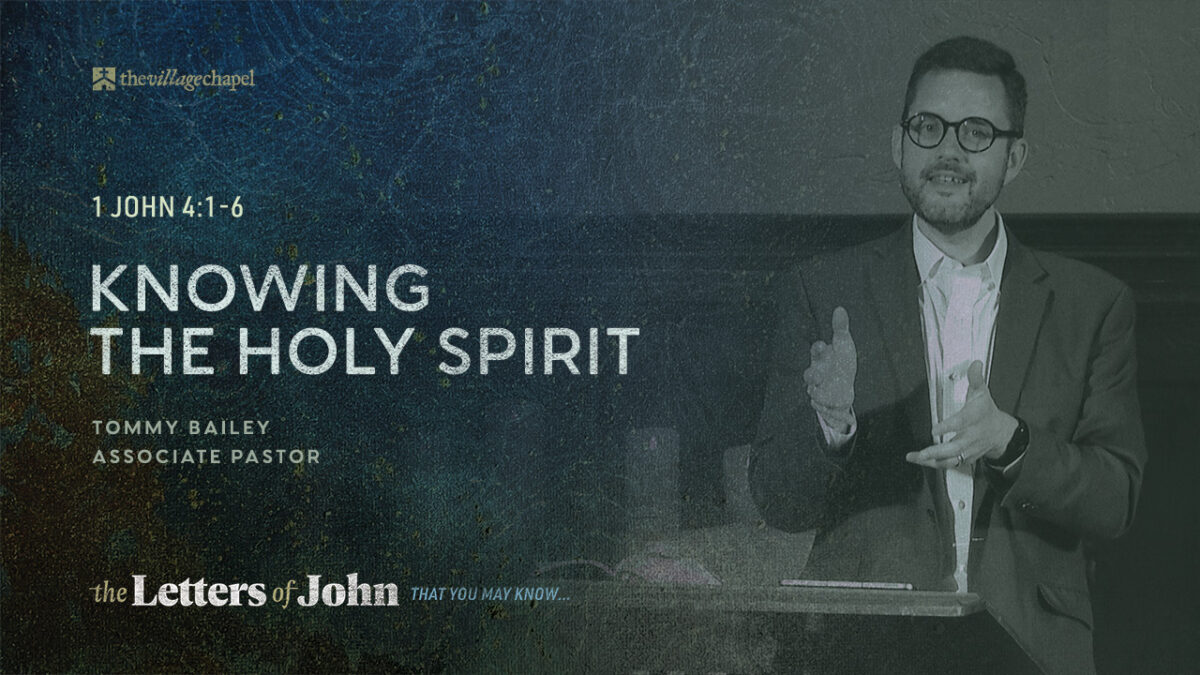True or False?
1 John 4:1-6
In a world resounding with a cacophony of voices, many in disagreement, how can we discern what is true and what is false? This question is as relevant today as it was in the time of the apostle John. As we dive into 1 John 4:1-6, we find helpful guidance on how to navigate the complexities of competing truth claims. The apostle John, often referred to as “the apostle of love,” displays the tenderness of a pastor’s heart as he warns his readers about the dangers of false prophets and false teachings.
1. The Need for Discernment (v. 1)
In the historical and cultural context of the early church, there were many false prophets who taught their own truth, often borrowed bits and pieces of the Christian gospel, twisted and distorted to their own liking. John knew these false prophets and teachers could sound convincing, perhaps even using Scripture to support some of their claims. Equipping his readers to discern truth from falsehood was part of the reason John wrote this letter in the first place.
“All things in Scripture are not alike plain in themselves, nor alike clear unto all: yet those things which are necessary to be known, believed, and observed for salvation, are so clearly propounded, and opened in some place of Scripture or other, that not only the learned, but the unlearned, in a due use of the ordinary means, may attain unto a sufficient understanding of them.”
Westminster Confession of Faith
“Discernment is not knowing the difference between right and wrong. It is knowing the difference between right and almost right.”
Charles H. Spurgeon
The apostle John’s advice still holds true, when testing any truth claim, we turn to God and His Word; we search the ancient scriptures to find the mind of God on all matters, because the Bible is our standard for belief and behavior.
2. The Test of Every Spirit (vv. 2-3)
John provides a specific criterion for testing the spirits: “Every spirit that acknowledges that Jesus Christ has come in the flesh is from God, but every spirit that does not acknowledge Jesus is not from God.” This statement may seem simple, but it carries profound theological weight.
The acknowledgment that Jesus Christ has come in the flesh is a declaration of the Incarnation—the truth that God became one of us, in the very real and historical person of Jesus Christ. This truth is central to Christianity. It’s not just an abstract theological concept; it’s the very heart of the Gospel.
Any teaching or spirit that denies this truth is, as John puts it, “the spirit of the antichrist.” This strong language emphasizes the seriousness of denying the core truth of who Jesus was and is.
3. The Assurance of Victory (v. 4)
John offers a word of encouragement and assurance: “You, dear children, are from God and have overcome them because the one who is in you is greater than the one who is in the world.” This verse is a powerful reminder of the victory we have in Christ. The world may be filled with deception and falsehood, but we have the Spirit of God dwelling within us, enabling us to overcome every obstacle to our faith in Jesus.
4. The Sources of the Voices (vv. 5-6)
John draws a clear distinction between the voices of the world and the voice of God. The world listens to messages that appeal to it lust, pride, and rebellion against God. In contrast, those who are “of God” pay attention to the historical, apostolic New Testament message, which faithfully presents the Gospel. Our listening isn’t just a passive hearing but an active listening, followed by obedience and submission to the Gospel truth.
In a world overflowing with information and competing voices, discerning truth from falsehood is more crucial than ever. John reminds us that the key to discernment lies in our understanding of Jesus Christ and the indwelling presence of the Holy Spirit. We must test the spirits, cling to the truth of the Gospel, trust in the One who indwells every believer, and is greater than any deception the world can offer.




